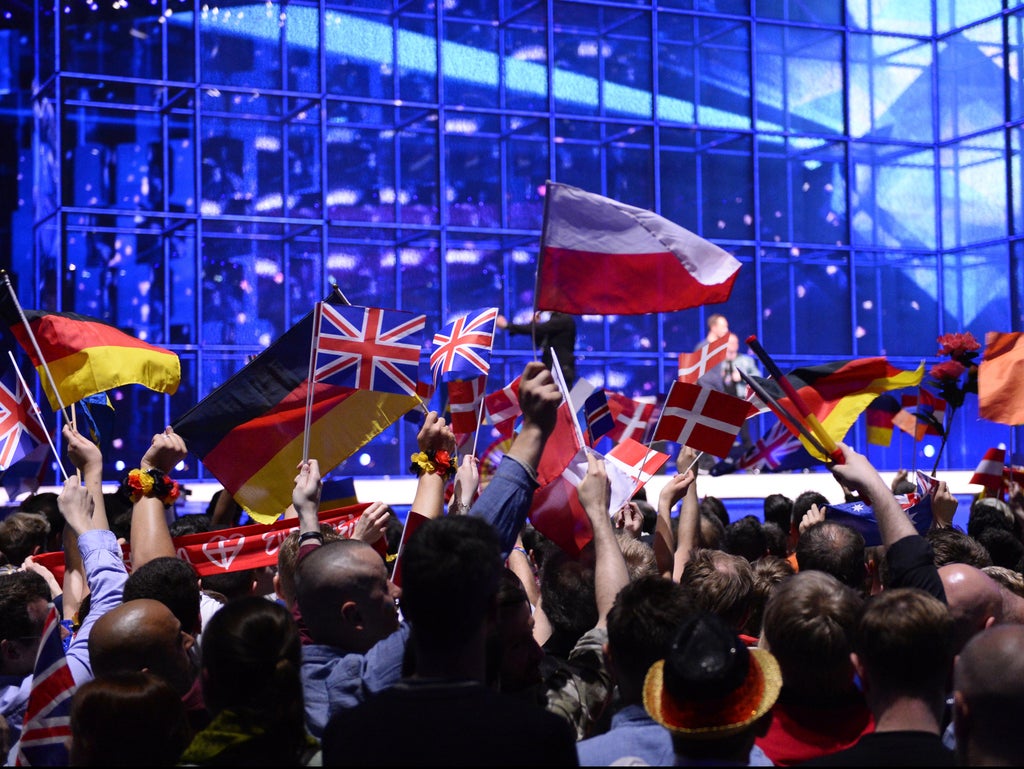
The European Broadcasting Union (EBU) has come under fire for announcing it plans to allow Russia to participate in the Eurovision Song Contest this year.
On Thursday (24 February), Eurovision said it had no intention of banning Russia from competing, despite president Vladimir Putin’s hostile and “unprovoked” invasion of Ukraine.
The EBU reiterated the annual competition’s status as a “non-political cultural event”, amid ongoing attacks by Russia on its neighbour.
“The Eurovision Song Contest is a non-political cultural event which unites nations and celebrates diversity through music,” a statement from the contest said.
Celebrities and Eurovision fans around the world have strongly condemned the EBU’s decision, calling for cultural sanctions on Russia.
Stephen Fry reacted to the news with disbelief in a Twitter post that read: “Excuse ME? Wh…? I mean…? Huh?”
Australian radio personality and journalist Francis Leach appealed to the nation’s public broadcaster SBS to “drop Eurovision” from its programming this year.
Journalist Otto English observed that Russia “should not be allowed to compete in anything” including Eurovision. He added: “The only argument for Russian inclusion in Eurovision is that the UK might not come last for once. And it’s not much of a reason.”
Fellow journalist James Ball called to “boycott Eurovision” until its organisers retracted their decision to approve Russia’s participation.
Television critic Scott Bryan commented on the “inherently political” nature of Eurovision, despite the claim that it is a “non political music event uniting Europe together”. He argued: “But of course, like most things, you can’t take politics out of things.”
Eurovision 2016 winner Jamala – who is from Ukraine – urged Eurovision fans to pay heed to Russia’s actions in Ukraine.
“I don’t know how this is possible, but they bombed peaceful people,” she said in an Instagram video. “Please support Ukraine. Stop Russian aggression.”
Jamala’s winning song, titled “1944”, is about the anguish of Crimeans deported by Russian premier Josef Stalin in 1944. Its lyrics go: “When strangers are coming // They come to your house // They kill you all // And say // We’re not guilty // Not guilty”
The 66th Eurovision Song Contest is scheduled to take place in Turin this year, following Italy’s victory with rock band Maneskin last year.
Last week, Ukraine’s chosen representative Alina Pash withdrew from the contest amid scrutiny over her reported 2015 visit to Russia-occupied Crimea. She has been replaced by rap group Kalush Orchestra, who will compete with their song “Stefania”.
Russia has yet to announce its 2022 Eurovision entry.
Russia’s actions have been met with condemnation from world leaders around the globe. Countries including the US and UK have announced that they will be imposing sanctions on Russia.
You can follow live updates on the Russia-Ukraine crisis here.







